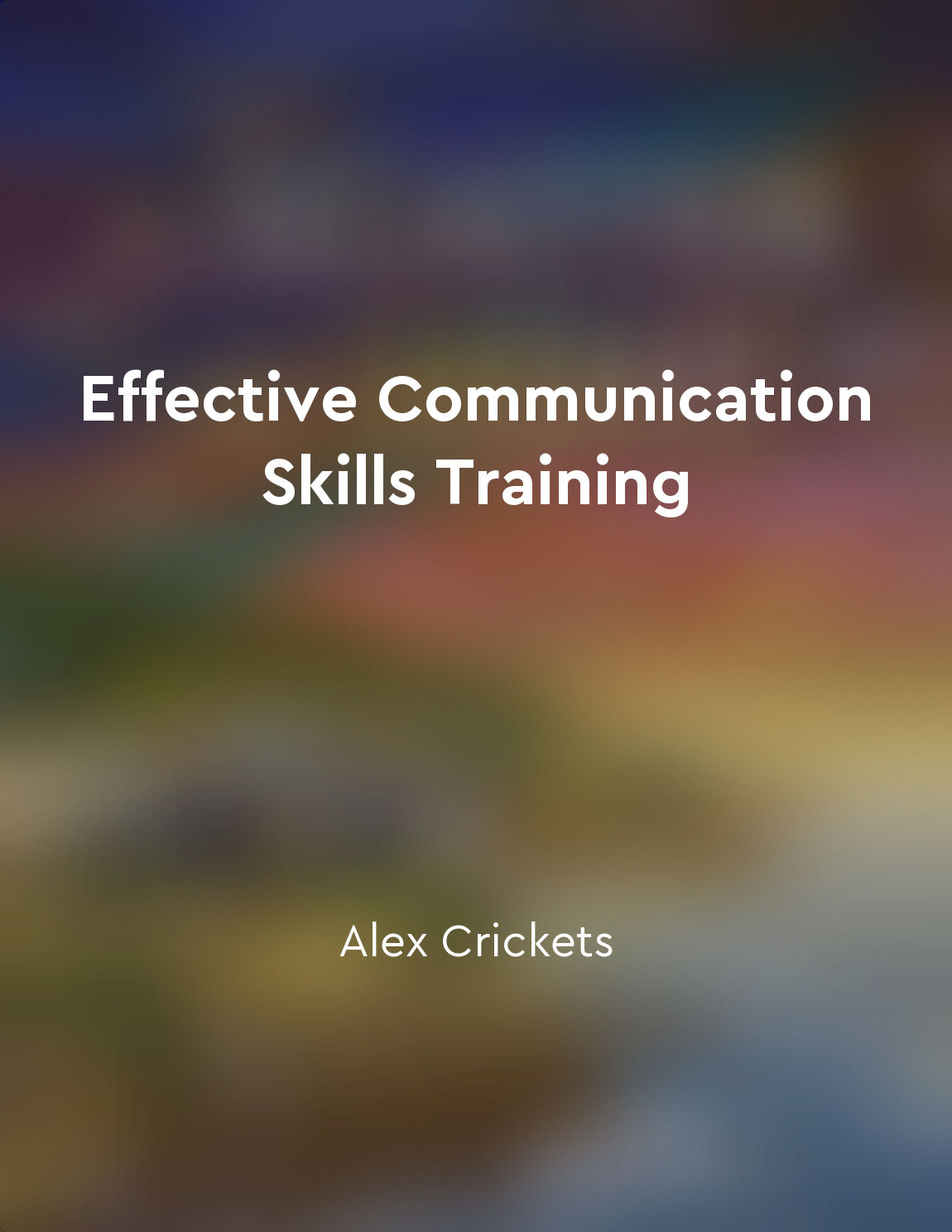Listen actively to understand others better from "summary" of How to Talk to Anyone, Anywhere, About Anything by Bruno Storm
Listening actively is a crucial skill when it comes to understanding others better. It is not simply about hearing the words that someone is saying, but rather about fully engaging with what they are expressing. This means paying attention not only to the words themselves but also to the tone of voice, facial expressions, and body language. When you listen actively, you are demonstrating a genuine interest in the other person and what they have to say. This can help to foster a deeper connection and build trust in the relationship. By focusing on the speaker and giving them your full attention, you are showing respect and empathy, which can go a long way in improving communication. One key aspect of active listening is asking clarifying questions. This shows that you are truly engaged in the conversation and are seeking to understand the other person's perspective. By asking open-ended questions, you can encourage the speaker to share more about their thoughts and feelings, leading to a more meaningful dialogue. Another important element of active listening is reflecting back what you have heard. This involves paraphrasing or summarizing the speaker's main points to ensure that you have understood them correctly. This not only demonstrates that you are listening attentively but also gives the speaker the opportunity to clarify any misunderstandings. In addition to asking questions and reflecting back, it is also important to provide feedback to the speaker. This can involve offering your own thoughts or insights on the topic at hand, which can help to deepen the conversation and show that you are actively engaged in the exchange.- Listening actively is a skill that can greatly enhance your ability to understand others better. By showing genuine interest, asking clarifying questions, reflecting back what you have heard, and providing feedback, you can build stronger connections and communicate more effectively with those around you.
Similar Posts

Help children express their feelings in a healthy way
It's important for parents to create an environment where children feel safe expressing their emotions. When kids are allowed t...
Provide value through your communication
When you communicate, whether it's in a presentation, conversation, or email, it's crucial that you provide value to your audie...
Cultivating trust leads to better communication
Trust is a fundamental element in any relationship, especially when it comes to communication. When individuals feel a sense of...
Strive for authenticity and honesty
The process of striving for authenticity and honesty is an ongoing journey that requires a commitment to self-exploration and v...
Boundaries
Boundaries are guidelines or limits that a person establishes to identify reasonable, safe, and permissible ways for others to ...

La confianza en uno mismo es fundamental
The importance of self-confidence cannot be overstated. It is a vital component in achieving success and happiness in life. Whe...

Recognizing barriers to effective communication
Communication barriers are obstacles that prevent effective interaction between individuals or groups. It is crucial to recogni...
Use technology to enhance your presentation
Technology has become an integral part of our daily lives, and it should also play a significant role in enhancing our presenta...
Utilize online tools for language practice
In today's digital age, there are a multitude of online tools available for language practice that can greatly enhance your Eng...

Mutual respect is the foundation of healthy communication
The essence of healthy communication lies in the fundamental principle of mutual respect. When individuals engage in conversati...


